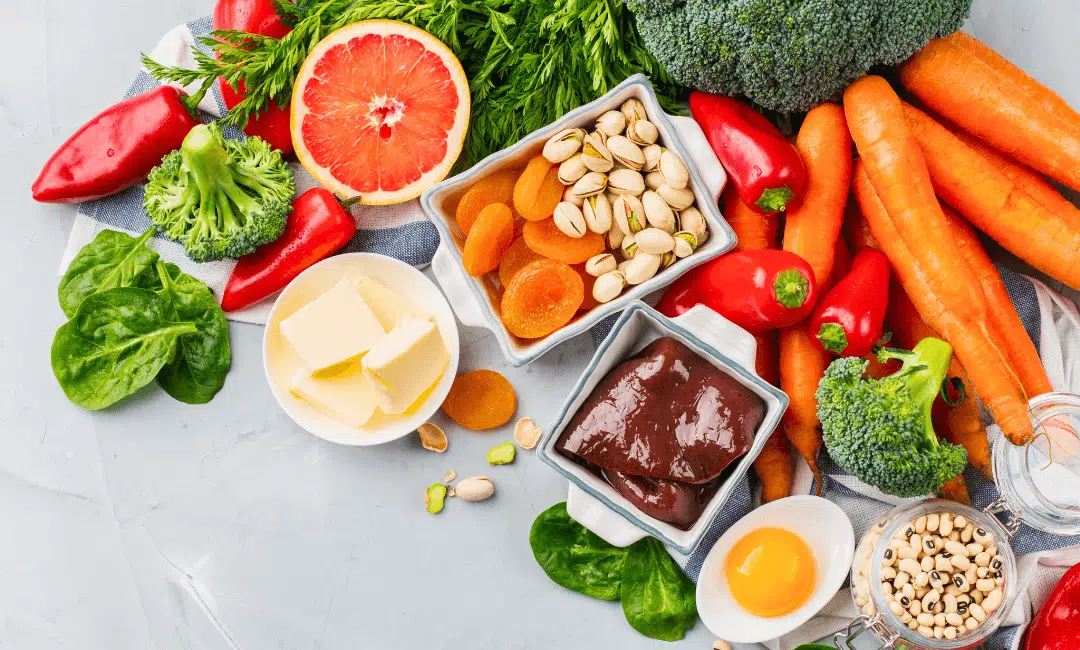As we approach the Thanksgiving season, our thoughts naturally turn to the delectable feast that awaits us. However, beyond the mouthwatering flavors and cherished traditions, this annual celebration presents an opportunity to explore the deep connection between the foods we consume and our gut health. In this article, I delve into the intricate relationship between the iconic Thanksgiving turkey and our gut microbiome, unveiling the nutritional benefits and potential drawbacks that accompany this beloved centerpiece.
Understanding the Role of Turkey in Gut Health
Turkey, the star of the Thanksgiving feast, is a rich source of protein, essential nutrients, and beneficial compounds that can influence our gut health in various ways. As we indulge in this savory centerpiece, let’s explore the intricate interplay between turkey and our gut microbiome.
- Protein and Gut Health: Turkey is an excellent source of high-quality protein, which is essential for the growth and maintenance of a healthy gut lining. The amino acids derived from turkey’s protein content support the production of mucus, a protective barrier that lines the intestinal walls, shielding them from potential irritants and pathogens.
- Tryptophan and Serotonin Production: Turkey is renowned for its tryptophan content, an amino acid that serves as a precursor to serotonin, a neurotransmitter that plays a crucial role in regulating gut motility and inflammation. Adequate serotonin levels can help maintain a healthy gut-brain axis, promoting overall digestive well-being [1].
- Zinc and Immune Function: Turkey is a good source of zinc, a mineral that supports immune function and contributes to the maintenance of a robust gut barrier. Zinc deficiency has been linked to an increased risk of intestinal permeability, commonly known as “leaky gut,” which can lead to inflammation and other digestive issues.
Nutritional Benefits of Turkey for the Gut
While turkey offers numerous benefits for gut health, it’s essential to consider portion sizes and preparation methods. Overconsumption of turkey or dishes laden with unhealthy fats and additives can potentially disrupt the delicate balance of the gut microbiome. To maximize the benefits of turkey for your gut, consider the following nutritional advantages:
- Lean Protein Source: Turkey is a lean protein source, making it a gut-friendly option compared to fattier meats. Lean proteins are easier to digest and less likely to contribute to inflammation in the gut.
- B Vitamins: Turkey is rich in B vitamins, including B6, B12, and niacin, which play crucial roles in supporting a healthy digestive system. These vitamins aid in the breakdown of food, nutrient absorption, and the maintenance of a balanced gut microbiome.
- Selenium: Turkey is a good source of selenium, an essential mineral with antioxidant properties. Selenium helps protect the gut lining from oxidative stress and supports the immune system, contributing to overall gut health.
How Sweet Potatoes Contribute to a Healthy Gut
While turkey takes center stage at the Thanksgiving table, the supporting cast of side dishes plays an equally important role in promoting gut health. One such standout is the humble sweet potato, a nutrient-dense powerhouse that offers a multitude of benefits for your gut microbiome.
- Fiber Content: Sweet potatoes are an excellent source of dietary fiber, which serves as a prebiotic, nourishing the beneficial bacteria in your gut. Fiber promotes regular bowel movements, supports digestive health, and helps maintain a diverse and balanced gut microbiome.
- Antioxidants: Sweet potatoes are rich in antioxidants, including vitamins A, C, and E, as well as carotenoids like beta-carotene. These powerful compounds help protect the gut lining from oxidative stress and inflammation, supporting overall gut health.
- Resistant Starch: A portion of the starch in sweet potatoes is resistant to digestion, acting as a prebiotic and feeding the beneficial gut bacteria. This can contribute to improved gut function, enhanced nutrient absorption, and a stronger immune system.
The Gut-Friendly Properties of Pumpkin Pie
No Thanksgiving feast would be complete without the iconic pumpkin pie, a dessert that not only delights the taste buds but also offers surprising benefits for gut health. Let’s explore the gut-friendly properties of this beloved holiday treat:
- Fiber-Rich: Pumpkin is a fiber-rich food, providing both soluble and insoluble fibers that support a healthy gut microbiome. Soluble fiber acts as a prebiotic, promoting the growth of beneficial gut bacteria, while insoluble fiber aids in regular bowel movements and digestive regularity.
- Antioxidants and Anti-inflammatory Compounds: Pumpkin is a rich source of antioxidants, including vitamins A, C, and E, as well as carotenoids like beta-carotene and lutein. These compounds help protect the gut lining from oxidative stress and inflammation, supporting overall gut health.
- Gut-Friendly Spices: The warm spices traditionally used in pumpkin pie, such as cinnamon, ginger, and nutmeg, offer additional benefits for gut health. These spices possess anti-inflammatory and antimicrobial properties, helping to maintain a balanced gut microbiome and promoting digestive comfort.
Cranberry Sauce and its Impact on Gut Health
While cranberry sauce may not be the first dish that comes to mind when considering gut health, this tart and tangy condiment offers surprising benefits for your microbiome. Let’s explore the gut-friendly properties of cranberry sauce:
- Polyphenol Content: Cranberries are rich in polyphenols, potent antioxidants that can help protect the gut lining from oxidative stress and inflammation. These compounds may also support the growth of beneficial gut bacteria, contributing to a balanced microbiome.
- Anti-Adhesive Properties: Cranberries contain unique compounds called proanthocyanidins, which have been shown to possess anti-adhesive properties. These compounds can help prevent harmful bacteria from adhering to the gut lining, reducing the risk of infections and promoting a healthier gut environment.
- Prebiotic Effects: The fiber content in cranberries, particularly the soluble fiber pectin, acts as a prebiotic, nourishing the beneficial gut bacteria and supporting a diverse and thriving microbiome.
Building a Gut-Friendly Thanksgiving meal
With a deeper understanding of the gut-friendly properties of Thanksgiving staples, we can thoughtfully create a feast that not only satisfies our taste buds but also nourishes our gut microbiome. Here are some tips for building a gut-friendly Thanksgiving meal:
- Embrace Variety: Incorporate a diverse array of nutrient-dense foods, including a variety of vegetables, whole grains, and lean proteins.
- Moderation is Key: While indulging in your favorite Thanksgiving dishes is part of the celebration, practice moderation to avoid overwhelming your digestive system. Overconsumption of rich, fatty, or sugary foods can disrupt the delicate balance of your gut microbiome.
- Hydrate Adequately: Staying well-hydrated is crucial for maintaining proper digestive function and supporting a healthy gut environment. Aim to drink plenty of water throughout the day.
Healthy Alternatives for Gut-Conscious Thanksgiving dishes
If you’re looking to make your Thanksgiving meal even more gut-friendly, consider incorporating some healthier alternatives to traditional dishes. Here are a few ideas to get you started:
- Roasted Vegetable Medley: Swap out heavy, cream-based side dishes for a vibrant roasted vegetable medley. Load up on nutrient-dense veggies like Brussels sprouts, carrots, and beets, which are rich in fiber and antioxidants.
- Quinoa Stuffing: Instead of traditional bread stuffing, try a quinoa-based stuffing. Quinoa is a gluten-free, nutrient-dense grain that provides a good source of fiber and protein.
Tips for Maintaining Gut Health during the Holiday Season
While Thanksgiving is a time for indulgence and celebration, it’s essential to strike a balance and prioritize your gut health throughout the holiday season. Here are some tips to help you navigate this festive period with a gut-conscious mindset:
- Practice Mindful Eating: Slow down and savor each bite, paying attention to your body’s hunger and fullness cues. This mindful approach can help prevent overeating and reduce the strain on your digestive system.
- Incorporate Probiotics: Consider incorporating probiotic-rich foods, such as fermented vegetables, kefir, or a high-quality probiotic supplement, to support a healthy gut microbiome during the holiday season.
- Stay Active: Maintain an active lifestyle by incorporating regular exercise into your routine. Physical activity can help promote regular bowel movements, reduce inflammation, and support overall gut health.
- Prioritize Stress Management: Stress can have a significant impact on gut health, potentially contributing to digestive issues and imbalances in the gut microbiome. Practice stress-reducing techniques like meditation, deep breathing exercises, or engaging in activities that bring you joy and relaxation.
Final Thoughts
As we gather around the Thanksgiving table, let’s embrace the opportunity to nourish not only our bodies but also our gut microbiome. By making mindful choices and incorporating gut-friendly foods like turkey, sweet potatoes, pumpkin pie, and cranberry sauce, we can create a feast that celebrates both tradition and overall well-being. Remember, moderation is key, and striking a balance between indulgence and gut health is essential. With a little forethought, we can savor the flavors of the season while supporting a thriving gut microbiome, setting the stage for a truly nourishing and enjoyable Thanksgiving celebration.
Sources
[1] Jenkins, T. A., Nguyen, J. C., Polglaze, K. E., & Bertrand, P. P. (2016). Influence of Tryptophan and Serotonin on Mood and Cognition with a Possible Role of the Gut-Brain Axis. Nutrients, 8(1), 56. https://doi.org/10.3390/nu8010056
https://bgapc.com/surviving-thanksgiving-sensitive-stomach/
https://www.everydayhealth.com/digestive-health/how-to-avoid-stressing-out-your-gut-at-thanksgiving/
https://thelifestyledietitian.com/5-ways-to-have-better-digestion-after-the-thanksgiving-meal/
https://www.science.org/doi/10.1126/scitranslmed.aba0624
https://ispyphysiology.com/2023/11/15/gobble-up-your-thanksgiving-turkey-for-better-gut-health/
https://www.healthline.com/nutrition/turkey
https://www.medicalnewstoday.com/articles/can-herbs-spices-influence-gut-health-microbiome-bacteria
https://www.eatingwell.com/article/8047957/best-spices-for-gut-inflammation/








